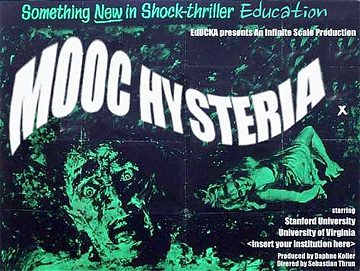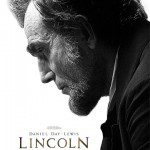I have been watching the growing popularity of MOOCs (“massive open online courses”) with considerable interest. To this point, they are offered for free (mostly) and without college credit. But this may change. According to Tamar Lewin, writing for the New York Times, the American Council on Education will consider offering college credit for some MOOCs. In “College Credit for Online Courses,” Lewin writes:
On Tuesday, the American Council on Education, the leading umbrella group for higher education, and Coursera, a Silicon Valley MOOC provider, announced a pilot project to determine whether some free online courses are similar enough to traditional college courses that they should be eligible for credit.
Further, according to Lewin, “The project is being watched closely by higher-education experts who expect MOOCs to broaden access to higher education and bring down the costs.”
An obvious upside of this credit-for-MOOC strategy would be making education available to those who otherwise couldn’t easily get it. Moreover, given the fact that most of the MOOC lecturers are among the best teachers in their field, the possibilities are indeed intriguing.

But this points to a potential downside. If you can get college credit for a MOOC, and if a MOOC is taught by an oustanding professor, why would you enroll in a similar course at your local community college? It’s not hard to envision a future in which MOOCs are putting many colleges in peril, not to mention eliminating the need for local professors. I wonder when we’ll start hearing about the treat that MOOCs pose to the educational system as we know it. (I should add, however, that some community college professors are outstanding teachers.)
I’m reminded of what has happened to preachers now that it is so easy to hear some of the best ones online, through podcasts, or on the good ol’ fashioned radio. As church members get used to great preaching, they become much less interested in hearing the average preaching in their own pews. Many become critical; many simply stop going to church. Yes, I know this shows a deficient understanding of what church should be. But human nature is as it is.
Given the possibility of MOOCs overwhelming traditional modes of higher education, some might say “Good riddance.” Why should students settle for mediocre profs when they could learn from some of the best? Yet, I can imagine that some especially creative colleges might capitalize on the MOOC opportunity by using their professors more for discussion and tutoring and less for lecturing, etc.
At any rate, it will be interesting to see how of this unfolds. But it seems possible to me that soon we will hear about colleges struggling to stay alive much in the way many forms of print media are drowning in the online pool. Yet, perhaps this very trauma will be the thing that brings about badly needed change in higher education.
















